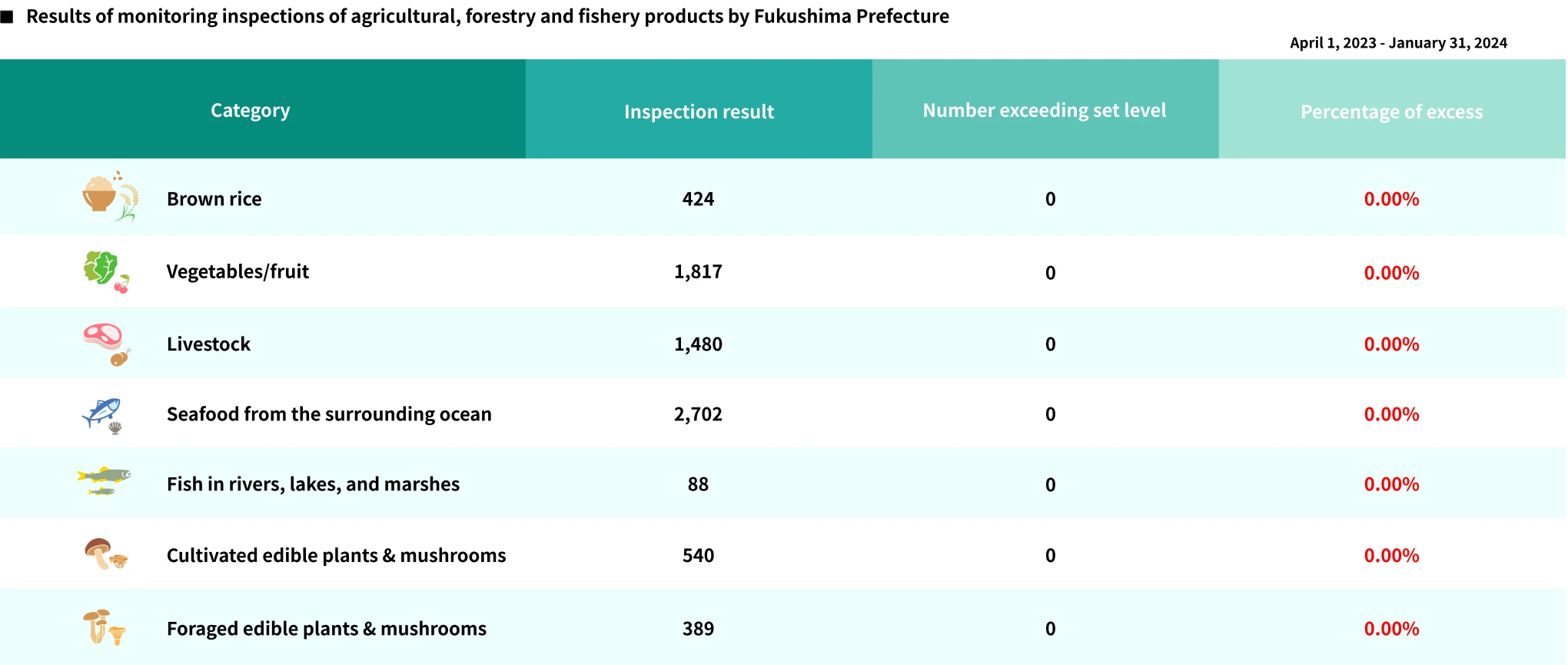FAQ
Safety of food products and drinking water in Fukushima and Japan
Japan applies the world's strictest standards for radioactive cesium, with limits set at 100 Bq/kg for general foods and 50 Bq/kg for milk. There have been almost no cases exceeding set levels in recent monitoring for radioactive materials in agriculture, forestry and fishery products. In fact, radioactive cesium has not even been detected.
Looking at rice, which is a staple food for Japan, Fukushima Prefecture introduced the new monitoring method of inspecting every single bag of rice produced in the region beginning with the 2012 crop. Over eight years, from 2012 to 2019, a total of 88.15 million inspections were conducted. Furthermore, no rice was found to have exceeded set levels for five years following the 2015 crop due to various initiatives including measures limiting the absorption of radioactive materials. As a result, monitoring methods have been aligned with other agricultural products as of the 2020 rice crop. However, certain areas, such as those previously under evacuation orders, will continue to be monitored more rigorously. Should any monitoring inspections find rice that exceeds the set levels, measures will be taken to ensure the rice is not distributed on the market.

Reference
Fukushima Prefecture, Fukushima Prefecture Agriculture, Forestry and Fisheries Products Processed Food Monitoring Information(Japanese)
Fukushima Prefecture, Fukushima Revitalization Information Portal Site, Monitoring results of agricultural, forestry and fishery products from Fukushima Prefecture